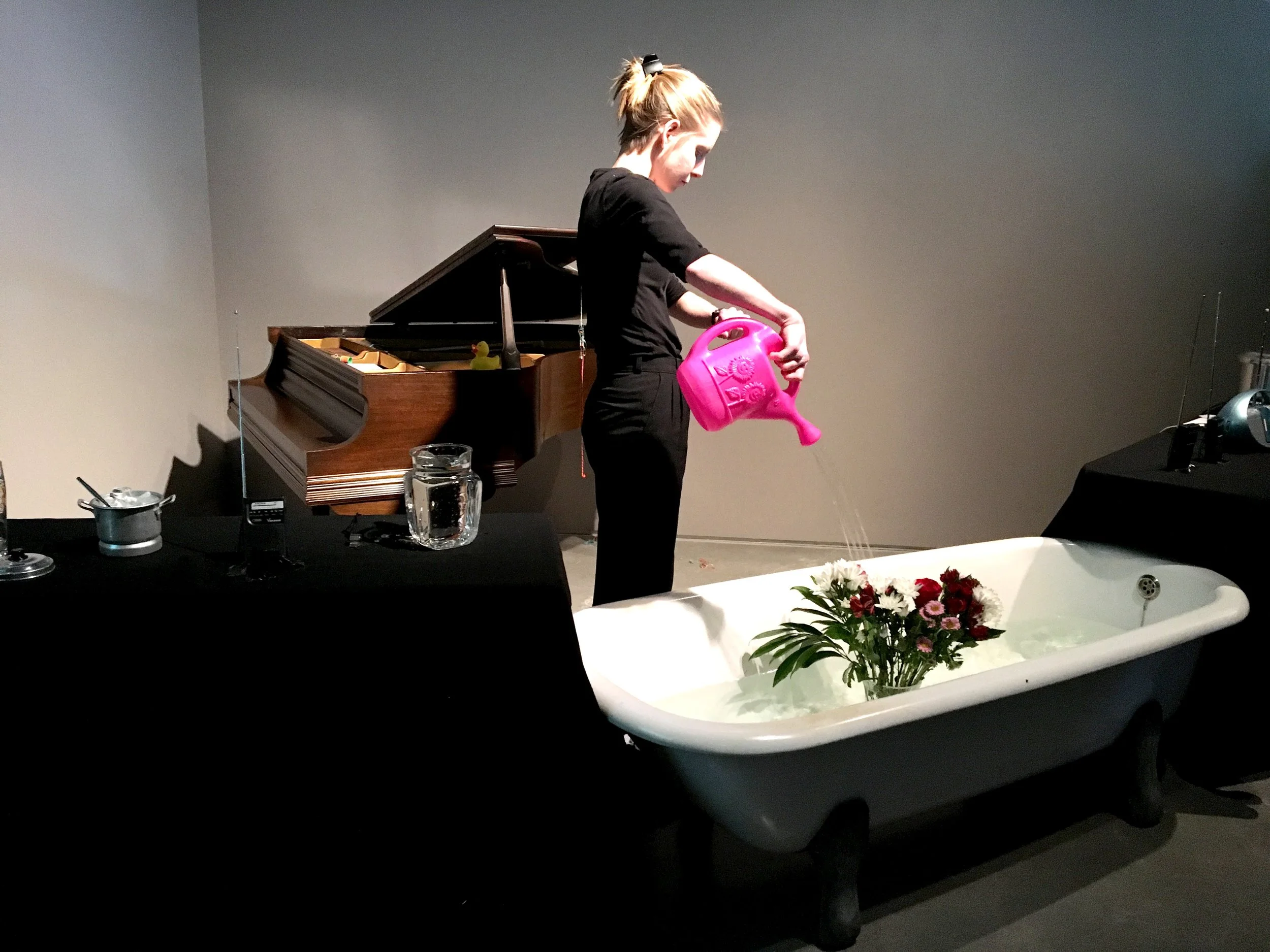
Die Bakchen (The Bacchae) from Euripides
An evening length, bombastic!, theater production at the Burgtheater in Vienna.
Directed by Ulrich Rasche, Music by Nico van Wersch.
Dionysus, also called Bacchus by his followers, returns to Thebes, his city of birth, to gather worshippers. The new ruler of Thebes, Pentheus, has created a secular order and does not acknowledge Dionysus’ divine origin as the son of Zeus. But large parts of the population under the leadership of Pentheus’ mother, Agave, have already been spellbound by the god. As so-called Bacchae, they have orgies in the nearby mountains in honour of the new god.
The Bacchae is a drama about crisis. It was first performed in 406 BC, shortly before Athens was defeated by Sparta after almost thirty years of war. This was a time of counter-enlightenment, intolerance, and the persecution of non-believers. The Greek Enlightenment, which had shaped the thinking of the fifth century BC, was completely dismantled, and Euripides turned his back on Athens.
Pentheus tries to stop the erosion of public life through military and police means. When he gets close to the Bacchae, he finds himself being torn to shreds. In blinded triumph, Agave marches into Thebes carrying her son’s head. But the cruel awakening is inevitable – both for her and the city.
The Bacchae – generally regarded as the last completed drama of the last of the three great ancient Greek authors, and a cornerstone of European theatre – rings in the new era of the Burgtheater under new direction. In this work, there is much at stake for urban society and its constitution.
Euripides describes the return of Dionysus, the “coming god” who promises community and identity, orientation and fellowship – and consequently freedom from individual responsibility and moral shackles and the license to use unbridled violence against his opponents. The Bacchae examines the entry of irrationality into a secular society. With the poetic force of ancient drama, it touches upon one of the fundamental questions of our time.
This production is director and stage designer Ulrich Rasche’s first work for the Burgtheater. In the past few years, he has caused a stir in the theatre world with his use of monumental stage machines, music and large choirs, and his uncompromising focus on language.
https://www.burgtheater.at/en/production/die-bakchen-bacchae


